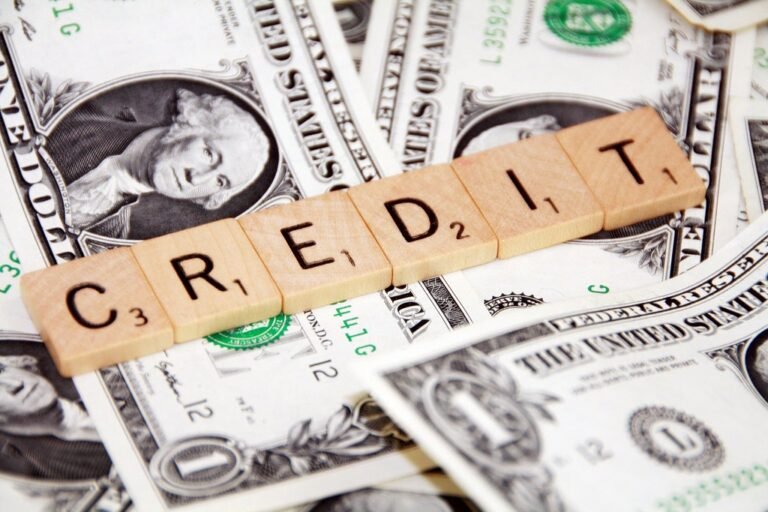How To Gain Good Credit Score
Gain control of your financial future by improving your credit score! In this blog post, I’ll share simple and effective strategies that I’ve personally used to boost my credit rating. Whether you’re just starting out or looking to recover from past mistakes, my tips will help you understand the steps I took to achieve a healthier score. Let’s initiate on this journey together and unlock the doors to better loan rates and financial opportunities!
Key Takeaways:
- Pay bills on time to establish a reliable payment history, which significantly impacts your credit score.
- Keep credit card balances low, ideally utilizing only 30% or less of your available credit to maintain a healthy credit utilization ratio.
- Limit the number of new credit applications, as multiple inquiries in a short time can negatively affect your score.
- Monitor your credit report regularly for errors or discrepancies, and address them promptly to ensure accuracy.
- Diversify your credit mix with different types of credit, such as installment loans and revolving credit, to show responsible credit management.
The Building Blocks of a Strong Credit Profile
A solid credit profile consists of several key components that work together to determine your credit score. Establishing a thorough understanding of these building blocks allows you to tackle any weaknesses and enhance your financial reputation. This knowledge enables you to strategize effectively, ensuring that you build and maintain a favorable credit history that will open doors for future financial opportunities.
Understanding Credit Reports and Their Components
Your credit report is a detailed record of your credit history, containing information like payment history, credit utilization, credit inquiries, and account types. Each of these components tells a story about how you manage credit, which lenders use to gauge your reliability. I advise reviewing your credit report regularly for errors or discrepancies, as correcting these can significantly improve your overall score.
The Role of Payment History in Your Score
Payment history is the most influential factor in your credit score, accounting for around 35% of the total. Timely payments showcase your reliability to lenders and positively impact your creditworthiness. If you miss a payment, it can stay on your report for up to seven years, significantly harming your score. I focus on prioritizing my bills, setting up reminders, and considering automatic payments to ensure I never miss a due date.
To illustrate, if you consistently pay your bills on time, you’re likely to build a strong foundation for your score. I’ve personally seen how a single missed payment can drop my score by several points, while consistent, on-time payments have gradually increased it over time. Each positive payment reinforces your credit profile, while late payments can have an immediate and lasting impact. So, fostering that reliable payment history should be at the forefront of your credit-building strategy.
Smart Strategies to Boost Your Score
I’ve discovered that boosting your credit score involves several smart strategies. One key aspect is understanding your credit behavior and making informed decisions moving forward. For advice on how to understand, get, and improve your credit score, stay updated on the latest practices in credit management.
The Power of Timely Payments
Making timely payments can radically transform your credit score. Payment history constitutes about 35% of your FICO score, and regular, on-time payments signal reliability to lenders. This means that simply paying your bills—whether it’s credit cards, loans, or utilities—on time every month can significantly enhance your creditworthiness.
Managing Your Credit Utilization Ratio
Your credit utilization ratio, which is the amount of credit you are using compared to your total available credit, plays a vital role in your score. Ideally, I aim to keep this ratio below 30%. For example, if your total credit limit is $10,000, try to keep your balance under $3,000. Lowering your balances not only positively impacts your score but can also result in better loan terms and interest rates.
To manage your credit utilization effectively, I recommend paying off high credit card balances first and keeping low balances on all cards. If possible, request a credit limit increase without increasing your spending. This tactic reduces your utilization ratio while enhancing your overall credit health. Regularly monitoring your credit report for any changes also ensures you stay aware of how your utilization impacts your score.
Diversifying Your Credit Accounts
Diversifying your credit accounts can boost your score by showing lenders that you can handle various types of credit. A mix of installment loans, credit cards, and retail accounts may benefit your overall credit mix, which contributes approximately 10% to your FICO score. It’s like creating an impressive portfolio that showcases your credit management skills.
To enhance your credit profile, consider adding different types of loans, such as a personal loan or a car loan, if it makes sense. Having a variety of credit types demonstrates your ability to handle diverse financial responsibilities. Be cautious, though—avoid taking on debt just for diversity’s sake; it’s crucial to maintain manageable levels to keep your finances healthy.
Common Pitfalls That Drag Down Your Score
Many people unknowingly engage in habits that significantly lower their credit scores. From missing payments to maxing out credit cards, these pitfalls can remain hidden until they affect loan applications or interest rates. Awareness of common mistakes is crucial in order to maintain a healthy credit profile. Let’s explore some of the primary issues that cause scores to plummet.
The Risk of Making Late Payments
Missing a payment, even by just a few days, can have a negative impact on your credit score. Creditors report payment history to credit bureaus, and late payments can stay on your report for up to seven years. The longer the delay, the more serious the consequences for your score.
Impacts of High Credit Utilization
Utilizing a high percentage of your available credit can send your score tumbling. This ratio, known as credit utilization, should ideally remain below 30%. When I keep my balances low relative to my credit limits, my score benefits significantly, showcasing responsible credit management.
If you find yourself constantly nearing or exceeding your credit limits, it’s time to reassess your spending habits. For example, accumulating a $5,000 balance on a $10,000 limit results in a 50% utilization rate, which might deter lenders and decrease your score. Aim to pay down those balances and consider making multiple payments throughout the month to maintain a healthier credit utilization ratio. Buying less on credit or requesting an increased credit limit can also help improve this metric.
Avoiding Excessive Credit Applications
Submitting multiple credit applications in a short period can trigger a series of hard inquiries on your report, negatively affecting your score. Lenders may see excessive applications as a sign of financial distress, leading to caution in approval decisions.
Limiting how often you apply for new credit is a wise strategy. Each hard inquiry can reduce your score by a few points, and if you’re shopping for loans or credit, aim to do it within a focused timeframe. Comparing rates should happen over a few weeks rather than spreading out applications. This approach minimizes the impact of inquiries while allowing you to secure the best terms possible.
Leveraging Your Credit History for Future Gains
Your credit history can be your greatest ally when seeking future loans or credit lines. By maintaining a positive credit profile, I can position myself favorably for larger purchases, like a home or car. Lenders assess my credit report to evaluate my financial responsibility, and a solid credit history paves the way for better interest rates and terms. Every time I make payments on time and keep my credit utilization low, I am effectively enhancing my financial reputation, allowing for potential growth in my borrowing capabilities.
How Long-Term Credit Affects Your Score
My credit score often benefits from the longevity of my credit accounts. The longer I maintain accounts in good standing, the more it positively influences my score. Credit scoring models tend to value established credit history, meaning that older, well-managed accounts can significantly bolster my score, creating a robust foundation for future credit opportunities.
Building Credit Through Responsible Borrowing
Responsible borrowing serves as a fundamental strategy for building and improving my credit score. By using credit judiciously and ensuring I can meet repayment obligations, I cultivate a trustworthy profile. This does not mean taking on debt recklessly; rather, it involves using credit cards responsibly, making small purchases and paying them off in full each month, and only borrowing what I can afford to repay comfortably. Over time, this prudent approach leads to a noticeable increase in my credit score.
More specifically, when I opt for responsible borrowing, I create a balanced credit profile that showcases both my willingness to use credit and my reliability in repaying it. I might consider starting with a secured credit card or a small personal loan and committing to regular repayments. These steps build trust with lenders and contribute positively to my credit mix. By treating each borrowing decision with care and consideration, I can steadily enhance my credit standing and achieve long-term financial wellness.
Tactics for Recovery from Credit Score Setbacks
Setbacks can feel overwhelming, but with the right tactics, recovery is achievable. I’ve faced bumps in my credit score journey and learned that addressing issues head-on can make all the difference. By understanding your credit report and actively working on improving your score, you can rebuild your financial credibility over time. Whether it’s re-establishing payment habits or knowing when to seek expert help, every step counts toward a brighter financial future.
Steps to Take After a Missed Payment
A missed payment can be disheartening, but don’t let it define your credit journey. First, I recommend paying the missed bill as soon as possible. If the payment is more than 30 days late, reach out directly to the creditor. Many lenders might offer a one-time courtesy waiver, especially if you have a history of on-time payments. Finally, review your budget and set reminders to keep future payments on track.
Credit Repair Services: When to Use Them
Sometimes, I find myself wondering when it’s worth investing in credit repair services. If your credit has suffered due to multiple issues like unpaid debts or inaccuracies on your report, these services can help. They often offer guidance and use their expertise to handle disputes you might not feel comfortable tackling alone.
Credit repair services can be especially beneficial if you’re dealing with complicated situations, such as a debt collector’s aggressive tactics or a significant number of late payments. They analyze your credit report, identify errors, and help you create a personalized strategy tailored to your financial situation. While some individuals successfully manage their credit repair on their own, those who feel overwhelmed or lack the time or knowledge to navigate the complexities of credit recovery might find these professional services invaluable. Ultimately, it’s about selecting what’s best for your specific needs.
Summing up
Conclusively, improving your credit score is a journey that involves a few simple yet effective steps. I prioritize paying my bills on time, keeping my credit card balances low, and regularly checking my credit report for errors. By being mindful of how I use credit and not applying for too much at once, I can build a healthy credit profile. Each small effort I make brings me closer to a higher credit score, which opens up many financial opportunities for me in the future.
FAQ
Q: What factors affect my credit score?
A: Several key factors influence your credit score: payment history (how timely you pay bills), credit utilization (the ratio of credit used to total credit available), length of credit history (how long your accounts have been active), types of credit used (a mix of credit cards, mortgage, and loans), and new credit inquiries (how often you apply for credit). Each of these elements plays a role in determining your overall score.
Q: How can I improve my credit utilization ratio?
A: To enhance your credit utilization ratio, consider making larger payments on your credit cards rather than just the minimum amount due. Additionally, avoid maxing out your cards and try to keep your balances below 30% of your available credit limit. You might also request a credit limit increase, which can provide more available credit and improve your ratio, assuming your spending habits don’t increase accordingly.
Q: Is it beneficial to check my credit report regularly?
A: Yes, checking your credit report regularly is beneficial. It allows you to identify any errors, fraudulent activity, or accounts that may not belong to you. By keeping tabs on your credit report, you can ensure that all information is accurate and that you are taking necessary steps to maintain or improve your credit score. Annual free credit report checks are available, and many services offer alerts for significant changes.
Q: How long does it take to see improvements in my credit score?
A: The timeline for improvements in your credit score can vary based on individual circumstances. Generally, positive changes, such as making on-time payments, reducing your credit utilization, or disputing errors on your report, may reflect within a few months. However, significant improvements often require consistent effort over several months or even years, depending on the extent of past negative behaviors.
Q: What should I do if I have a low credit score?
A: If your credit score is lower than desired, it’s vital to take proactive steps. Start by assessing your credit report to identify areas for improvement. Focus on making on-time payments, reducing debt, and avoiding new hard inquiries. Additionally, consider establishing a secured credit card to build positive credit history. Patience and consistent effort can lead to eventual improvements.















